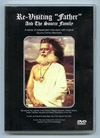 The storied and obscure LPs recorded by the cult of Ya Ho Wha
throughout the 1970s are as legendary as it is possible for any
underground musical phenomenon to be. Always spoken about in hushed,
clandestine tones among the converted, these LPs have provided numerous
objects of obsession for collectors of rare psychedelia over the years,
their scarcity making them some of the most difficult and expensive
psych records to track down.
The storied and obscure LPs recorded by the cult of Ya Ho Wha
throughout the 1970s are as legendary as it is possible for any
underground musical phenomenon to be. Always spoken about in hushed,
clandestine tones among the converted, these LPs have provided numerous
objects of obsession for collectors of rare psychedelia over the years,
their scarcity making them some of the most difficult and expensive
psych records to track down.
Swordfish
A few years ago, Japan's Captain Trip
label released a massive 13 CD boxed set which documented what was
assumed to be the entire musical output of this strange Aquarian cult,
which brought the music to a whole new generation of listeners,
including me, who derived endless fascination from poring over the
breadth and variety of tribal, primitive, low-fidelity, esoteric
psychedelic rock that Father Yod and the Source Family had produced.
Information about the cult itself was hard to come by, and the
Japanese-language booklet that came with the box set wasn't much help,
so much of what I knew about the cult came only through rumor and
innuendo, and I could only make educated guesses as to what the
motivation behind the music could possibly have been. Rumors abounded
that Sky Saxon of The Seeds had been a member, that Father Yod claimed
to be the One True God, and that the entire "family" spent their days
marinated in psychedelics, only interrupting their marathon sex orgies
long enough to commit to vinyl another album of deranged lysergic
noise.
The mystery surrounding this group of New Age California uber-hippies
has now been partially solved with the release of this two-hour-plus
DVD documentary, painstakingly documenting the history of Ya Ho Wha
from his humble beginnings as a decorated WWII hero named Jim Baker, to
his opening of California's most successful vegetarian restaurant, to
his founding of one of the most focused and active of the post-60s
Aquarian cults, to his strange and untimely death in a bizarre
hang-gliding accident. The DVD is released on the UK's Swordfish label,
who have distinguished themselves of late by not only re-releasing in
deluxe CD editions some of the Ya Ho Wha albums previously only
available as part of the Japanese box set, but also issuing The Operetta,
a heretofore unreleased recording dating from 1975. This video
documentary was the undertaking of Evan Wells, a student who made the
film as his senior year comprehensive exercise in American Studies at
Carleton College. Wells was so fascinated with a worn copy of the Penetration
album given him by his brother that he decided to track down as many of
the extent members of the Source Family as he could, getting them to
sit for lengthy on-camera interviews, tracing the history of the cult.
Interspersed throughout the many interviews with aging hippies with
names like Isis, Sunflower, Rain, Galaxy, Pythias and Omne are many
period photographs and some video and film footage from the period.
Although it's clear that Wells tried to include as much period footage
and photographs as he could to break up the monotony, most of the film
involves single, unbroken, eye-level shots of the interviewees captured
on cheap video gear. At two and a half hours, this does tend to get a
bit tedious, so the DVD works best broken into a few viewing sessions.
However, the story that the family members tell is never boring, as
they try hard to recapture a particularly magical place and time, a
confluence of heightened 60s zeitgeist that led to many such unique
convocations of spirituality, culture and alternate ethical
philosophies. The common line on the hippies and dropouts is that their
revolution failed, and that they all dropped back in, got jobs, got fat
and started voting Republican. This view is severely questioned by the
subjects of Wells' film, none of whom have given up their lofty ideals,
and all of whom speak fondly of their days as followers of Father Yod,
and are proud of the music and art and culture that they created or set
in motion.
Much to my chagrin, the documentary does not spend a great deal of time talking about the music that the cult recorded, which is unfortunate, as it strikes me that the music arm of the cult was far more adventurous and revolutionary than their dime-store New Age recycled spiritual philosophies would have you believe. Still, the documentary's soundtrack is filled with selections from the Ya Ho Wha discography, reminding me again why I find the whole phenomenon so fascinating. Wells' hilariously amateur filmmaking style, together with his odd penchant for appearing as omniscient narrator in the corner of the frame with his back turned to the camera, holding an old-school Bob Barker-style microphone and wearing a tuxedo, make it seem as if he might regard this whole enterprise as a high-concept joke. Either that, or it's just a hilarious miscalculation. No matter, the DVD is still a unique and interesting document with a fascinating story to tell, and the only video documentary about the Source Family that is ever likely to see the light of day.



